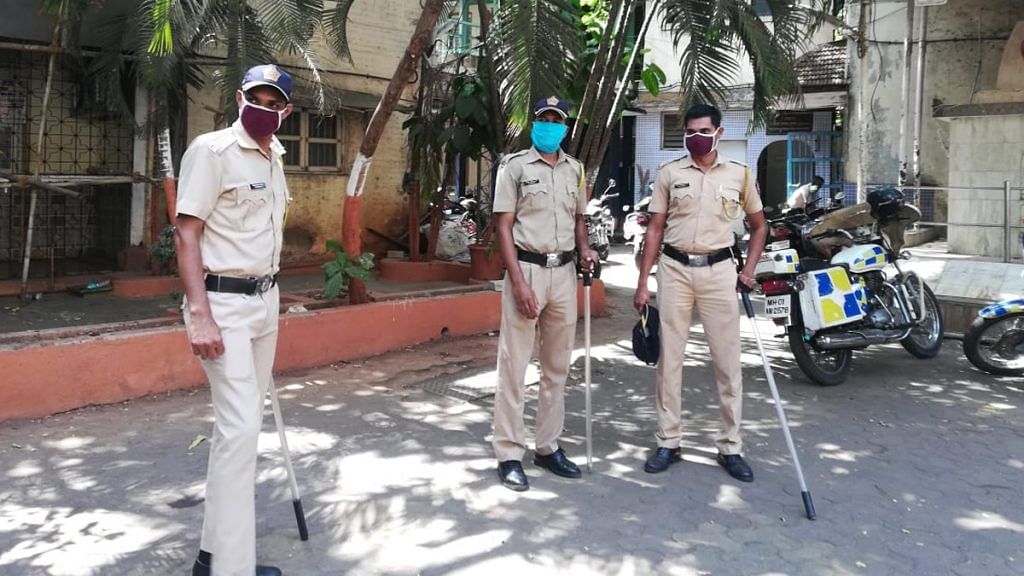New Delhi: India has been under lockdown for nearly two and a half months now, and even though restrictions have been eased in some parts of the country, the number of coronavirus cases continues to rise.
In all this, life has been thrown out of gear for more than 10 weeks now, and ThePrint reporters have been on the ground across the country to bring you accurate eyewitness accounts of how the pandemic and lockdown are impacting lives and how the authorities are working to contain the impact.
This week, teams of our reporters covered the coronavirus trail in Mumbai, Chennai and Hyderabad. They visited Covid hotspots, makeshift wholesale markets and Amma Canteens, and spoke to vegetable vendors, police officers and other local authorities, and daily wagers struggling to get even one meal a day.
Also read: Train journeys to the south an eye-opener, scramble for hospital beds in Mumbai turns fatal
Mumbai’s police force struggles to cope with virus
In Mumbai, Swagata Yadavar and Soniya Agrawal visited a number of police stations to see how the policemen, on the frontline of the Covid battle, are coping with the city’s rising numbers and crumbling infrastructure.
Every day before he leaves for his 12-hour shift, Assistant Sub-Inspector Raut of Nagpada police station told ThePrint, he pops four pills of a homeoopathic medicine, an immunity-boosting ayurvedic concoction and some whey protein to build strength.
He carries a sanitiser with him, and before entering his home at the end of the day, sprays it on his person, and then goes straight for a hot bath before touching anything in the house.
Mumbai is struggling to keep the pandemic under control, and its police force has reported almost 1,500 cases of Covid-19. Nagpada station itself has reported 13 cases. With housing in Mumbai being notoriously poor, many police officers stay in cramped quarters and share a bathroom with several others, or go to public toilets while on their long shifts, during which they deal with a high number of people, several officers explained to ThePrint.
Many of them don’t take care of their diet or immunity either, and all of this add up to making them vulnerable to Covid-19. Read more here.
Also read: Quarantine in Vadodara, walking in Dharavi, circle of life in UP — stories of hope & despair
Telangana Police relies on tech to contain Covid
ThePrint’s Aneesha Bedi and Suraj Singh Bisht have been tracking the controversy around Telangana’s low testing numbers. This week, they spoke to a number of officers from the Telangana Police, which the government credits for its low case count.
They explained that their methods to trace contacts of Covid patients and track lockdown violators are based on geo-mapping, facial recognition and CCTV cameras placed outside gated communities and apartments, with the force relying heavily on artificial intelligence.
However, many tech researchers and lawyers told ThePrint that the Telangana Police’s methods raise privacy concerns, with some calling the use of facial recognition technology illegal. Read more here.
Chennai’s Amma Canteens stop free food and Koyambedu market is out of business
In Chennai, many are unhappy with the Amma Canteens’ decision to revoke free food.
When the nationwide lockdown was announced in March, Chennai’s famed Amma Canteens swung into action. For more than two months, the 407 outlets across the city, which already provided heavily subsidised meals, had been serving free meals to anyone who came in.
Security personnel, sanitation workers, daily wagers, all were welcome and no one was left hungry, reports Revathi Krishnan, who visited the Sholinganallur canteen and spoke to proprietors and diners.
However, with the easing of lockdown restrictions, the canteens have now started charging again. It’s only around Rs 15 for three meals a day, but it’s a price many daily wagers, who have relied on these establishments for basic sustenance these last 10 weeks, cannot afford.
Many of them are out of work because the city’s largest wholesale market, the 65-acre Koyambedu, was shut down in May after it was designated a Covid hotspot.
Established in 1996, the market houses 3,750 licenced shops, and has emerged as one of the largest Covid clusters in India. While a makeshift market has been set up in Thirumazhisai, 18 km away, with no means of transport and the difficulty of getting a license to operate there, it is of no use.
At the Thirumazhisai market, ThePrint found that despite stringent disinfection and temperature checks, and the ability to maintain social distance, buyers and sellers were unhappy. The authorities haven’t allowed retailers to set up shop here, causing a problem for buyers, and vendors are unimpressed that there isn’t even a toilet for them to use. Read more about Chennai’s battle with Covid-19 here and here.
Also read: Masked waiters, no touching of temple idols — govt lays down ‘Unlock 1’ rules
